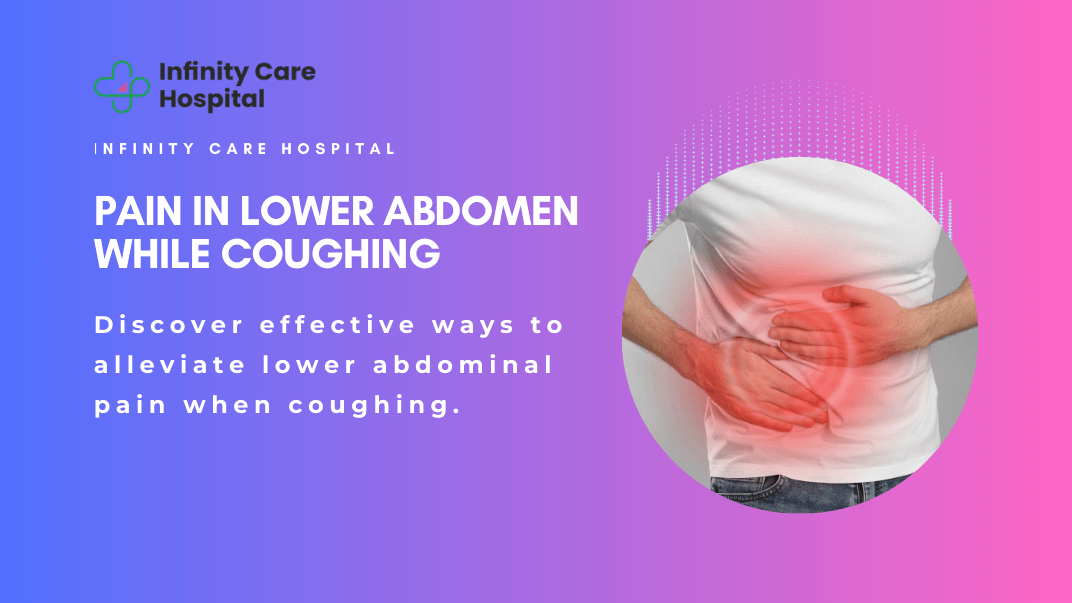Coughing Pain In Lower Abdomen: Causes, Symptoms, Diagnosis, And Treatment
Experiencing coughing pain in the lower abdomen can be distressing and may indicate underlying health issues. This discomfort can arise from a variety of conditions, ranging from minor irritations to more serious medical concerns. Understanding the causes, symptoms, and treatment options is crucial for managing this condition effectively.
Many individuals encounter abdominal pain during or after a coughing fit, which can be alarming. This type of pain is often linked to muscular strain, gastrointestinal issues, or even respiratory problems. Recognizing the triggers and learning about the available treatments can help alleviate discomfort and improve quality of life.
This comprehensive guide delves into the causes, diagnosis, and management of coughing pain in the lower abdomen. By equipping yourself with accurate information, you can take proactive steps to address this issue and consult healthcare professionals when necessary.
Read also:Autumn De Forest Artwork The Rising Star Of Modern Art
Table of Contents
- Understanding the Condition
- Common Causes of Coughing Pain in Lower Abdomen
- Identifying Symptoms
- Diagnosis Process
- Treatment Options
- Preventive Measures
- Dietary Considerations
- Lifestyle Adjustments
- Medical Interventions
- Frequently Asked Questions
Understanding the Condition
Before diving into the specifics, it is essential to understand what coughing pain in the lower abdomen entails. This condition occurs when a persistent or intense cough triggers pain in the abdominal region. It may be linked to muscle strain, hernias, or internal organ complications.
What Triggers the Pain?
The pain is often caused by the sudden pressure exerted on the abdominal muscles during a coughing episode. This pressure can lead to discomfort or sharp pain, particularly in individuals with pre-existing conditions such as hernias or weakened abdominal walls.
Who Is at Risk?
Individuals with chronic respiratory conditions, obesity, or a history of abdominal surgeries are more prone to experiencing this type of pain. Understanding your risk factors can help in early detection and management.
Common Causes of Coughing Pain in Lower Abdomen
Several underlying conditions can contribute to coughing pain in the lower abdomen. Below are some of the most common causes:
- Muscle Strain: Repeated coughing can strain the abdominal muscles, leading to localized pain.
- Hernias: A hernia occurs when an organ pushes through a weak spot in the abdominal wall, causing pain during coughing.
- Gastrointestinal Issues: Conditions such as gastroesophageal reflux disease (GERD) or irritable bowel syndrome (IBS) may exacerbate abdominal pain during coughing.
- Respiratory Infections: Persistent coughing from infections like bronchitis or pneumonia can strain the abdomen.
Less Common Causes
Less frequently, this pain may be associated with:
- Kidney stones
- Pelvic inflammatory disease
- Urinary tract infections
Identifying Symptoms
Recognizing the symptoms of coughing pain in the lower abdomen is vital for timely intervention. Key symptoms include:
Read also:Mask Dybala Unveiling The Mystery Behind The Iconic Persona
- Sharp or dull pain in the lower abdomen
- Increased pain during coughing or sneezing
- Swelling or bulging in the abdominal area
- Nausea or vomiting
When to Seek Medical Attention
If you experience severe or persistent pain, it is advisable to consult a healthcare professional. Additional warning signs include fever, blood in the stool, or difficulty breathing.
Diagnosis Process
Accurate diagnosis is crucial for effective treatment. Healthcare providers may use the following methods to identify the underlying cause:
- Physical Examination: Assessing the abdominal area for swelling or tenderness.
- Imaging Tests: Ultrasound, CT scans, or MRI to detect hernias or other abnormalities.
- Laboratory Tests: Blood or urine tests to rule out infections or other conditions.
Importance of Early Diagnosis
Early detection can prevent complications and improve treatment outcomes. Prompt medical evaluation ensures that serious conditions are addressed promptly.
Treatment Options
Treatment for coughing pain in the lower abdomen depends on the underlying cause. Below are some common approaches:
- Pain Relief Medication: Over-the-counter pain relievers can help manage discomfort.
- Hernia Repair Surgery: Surgical intervention may be necessary for hernias causing significant pain.
- Antibiotics: Prescribed for infections such as urinary tract infections or pneumonia.
Natural Remedies
Complementary treatments, such as applying heat packs or practicing gentle stretching exercises, may also provide relief.
Preventive Measures
Preventing coughing pain in the lower abdomen involves addressing its root causes. Consider the following strategies:
- Maintaining a healthy weight to reduce abdominal strain
- Practicing proper coughing techniques to minimize pressure
- Avoiding activities that exacerbate coughing
Dietary Considerations
A balanced diet can play a significant role in managing this condition. Incorporate the following into your diet:
- Fiber-rich foods to prevent constipation
- Hydration to support respiratory and digestive health
- Anti-inflammatory foods such as turmeric and ginger
Food to Avoid
Limit consumption of:
- Spicy or acidic foods that may worsen GERD
- Caffeine and alcohol, which can irritate the digestive system
Lifestyle Adjustments
Making lifestyle changes can significantly reduce the likelihood of experiencing coughing pain in the lower abdomen. Suggestions include:
- Engaging in regular physical activity to strengthen abdominal muscles
- Practicing stress management techniques to reduce coughing episodes
- Quitting smoking to improve respiratory health
Exercise Tips
Gentle exercises like yoga or Pilates can enhance core strength and flexibility, reducing the risk of muscle strain.
Medical Interventions
In some cases, medical interventions are necessary to address the underlying cause. These may include:
- Surgical repair for hernias
- Medications to manage chronic conditions like GERD
- Therapeutic cough suppressants for persistent coughs
Follow-Up Care
Regular follow-up appointments with your healthcare provider ensure that the treatment plan remains effective and any complications are addressed promptly.
Frequently Asked Questions
Q: Can coughing pain in the lower abdomen resolve on its own?
A: Mild cases may improve with rest and self-care, but persistent pain requires medical evaluation.
Q: Are there home remedies for this condition?
A: Yes, applying heat, practicing deep breathing, and maintaining a balanced diet can provide relief.
Q: How long does it take to recover from a hernia repair?
A: Recovery times vary, but most individuals regain normal activities within a few weeks post-surgery.
Kesimpulan
In conclusion, coughing pain in the lower abdomen can stem from various causes, including muscle strain, hernias, or gastrointestinal issues. Recognizing the symptoms, seeking timely diagnosis, and adhering to appropriate treatment plans are essential for managing this condition effectively.
We encourage readers to share their experiences or ask questions in the comments section below. Additionally, explore other informative articles on our website for further insights into health and wellness.
Data Source: Mayo Clinic, CDC

:max_bytes(150000):strip_icc()/Health-Left-Abd-Pain-GettyImages-1460145757-Horiz-94b7ffa8c95d4b1da96497685c2a1e7a.jpg)
